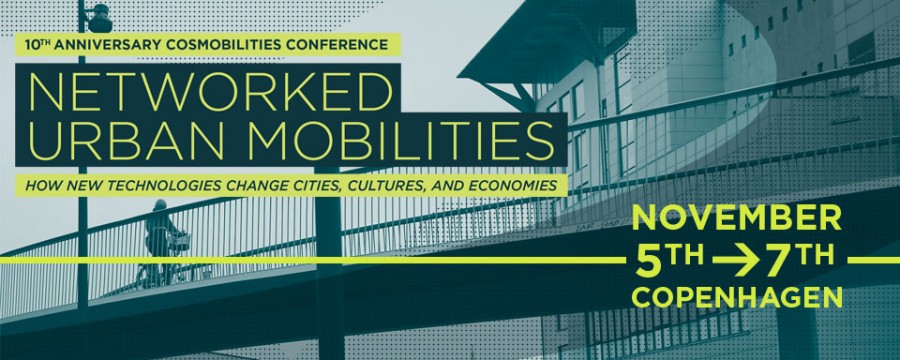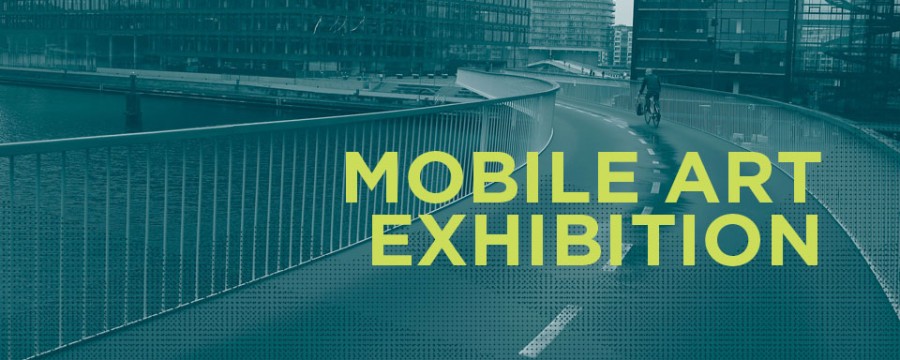Networked Urban Mobilities 2014
Download the official conference programme
Networked Urban Mobilities
How new technologies change cities, cultures and economies
When in 2004 some twenty people came together in Munich for a workshop on ‘Mobility and the Cosmopolitan Perspective’ none of them had ever considered this the birth of a lasting research network. Nevertheless, the running gag during those days has turned into a network – from cosmopolitan mobilities to COSMOBILITIES!
We can’t recall anymore who it was but somebody said: ‘This name calls for a network!’. And today, a decade later, we do not overstate by saying that the Cosmobilities Network plays a substantial role within the mobilities turn in social science. And also beyond academia, in politics, civil society and industry mobilities research is not anymore an unknown, strange plural word but rather a label for innovative thinking and socially committed science on the future of mobile lives and societies on the move.
More and more Cosmobilities has become a space, a place for encounters, an address (www.cosmobilities.net) and a synonym for cutting-edge research and innovative theories and methodologies. A huge number of individual scholars and research institutions worldwide have been working together for this success. They have generated a new interdisciplinary literature and new thinking on the social transformations of the modern mobile world and its risks and opportunities. The ‘new mobilities paradigm’ has influenced the work and thinking of academic scholars as well as practitioners in science, public authorities, industry and civil society.
We are happy to celebrate the 10th anniversary of the Cosmobilities Network with a conference on Networked Urban Mobilities. It shows the power and the potentials of the social scientific approaches in one of the most exiting research fields of today. It gives space for debate on the urging contemporary question: How do new technologies change cities, cultures and economies? Complex settings of social, technological, geographical, cultural, and digital networks are constituting and shaping people’s mobilities. New forms of social and cultural life are emerging with strong impacts on the ecological and cultural conditions of modern lives. We are facing future mobilities in a resource-constrained world. An approach is required which bridges research disciplines and analyses societal consequences of path dependencies, funding decisions and technology policies.
Continuing the good Cosmobilities tradition of a dynamic and controversial but constructive debate culture we are trying out new formats for sharing knowledge and ideas. We have developed the new format of 7/7 sessions putting roundtable discussions and creative communication in the centre. Additionally, and to celebrate the interdisciplinarity of mobilities research, we have invited artists working with mobilities to conduct a mobile art exhibition during the conference. This gives way to exploring the themes of mobilities, cities, cultures, economies and ecologies, and reflecting on the on-going discussions during the conference.
We want to thank Aalborg University, Roskilde University, the Mobile Lives Forum, Obel Foundation, the Springer publishing house and namely Dorothee Koch and Erika Vogt for their generous support and work for this conference, the members of the Scientific Committee, the amazing Organising Team, and numerous volunteers, who all have been contributing to making this conference a reality.
And last but not least, we are grateful to the participants and contributors of this and all former conferences, who have been part of making Cosmobilities conferences a special place to meet and discuss. We want to thank all of you for supporting the Cosmobilities Network and joining its 10th ‘birthday party’. We hope you will enjoy it and return home not only inspired but also with more energy to continue your work.
Our best wishes on behalf of the Cosmobilities Network,
Malene Freudendal-Pedersen
Sven Kesselring










